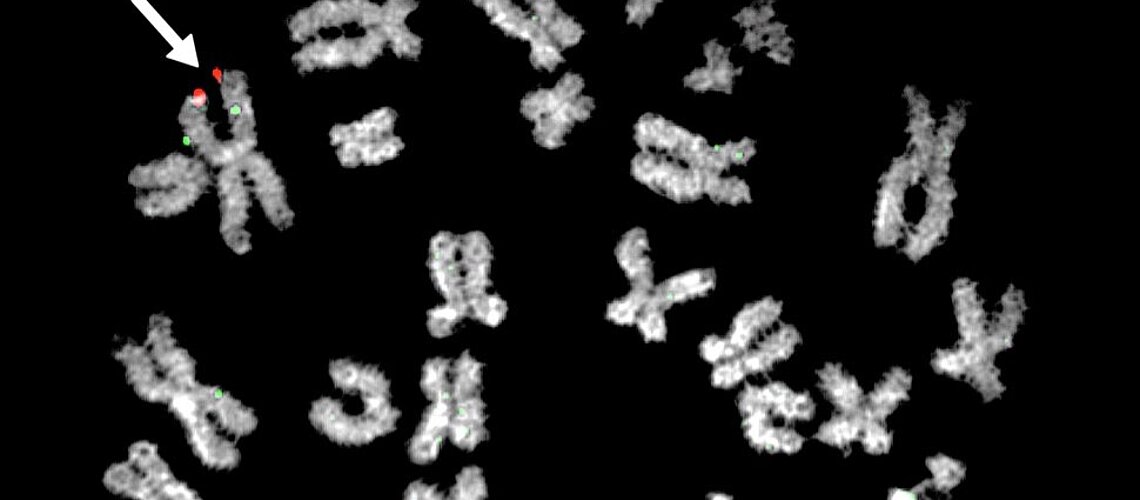Einstein International Postdoctoral Fellow Amr Aswad, the virologist Benedikt Kaufer and an international group of co-authors published their latest findings on the ancient zoonotic disease herpes and the evolution of its genome in a paper for Molecular Biology and Evolution. Their study investigated the evolutionary history of the endogenous Human Herpesvirus 6 (HHV-6), which they showed has been integrating in our genomes since before the human migration out of Africa.
All living things pass their genes from parent to offspring. However, for around 1% of humans – roughly 80 million people – a herpesvirus is lurking amidst their genes, being inherited from one generation to the next. Under normal circumstances, viruses infect the cells of our body where they reproduce and spread from person to person, through bodily fluids for example.
In the case of human herpesvirus 6, the virus has instead integrated into the genome of a sperm or egg cell, resulting in offspring that have the virus in every cell of their body. In their latest research published July 2020 in the journal Molecular Biology and Evolution, Amr and his colleagues analyze the evolutionary history of this unusual virus. For their study, they worked with big sets of data: They identified groups of unrelated people from different parts of the world that share the same virus in the same location in their genome. The integration of the virus into DNA of the human host cell had happened through common ancestors, thousands of years ago.
The results of the study show that the virus has integrated into the human genome many times, and has been doing so since before our species migrated out of Africa roughly 100,000 years ago. There are also clues in the data that suggesting that some strains of the virus are still integrating, while others have not done so for many years. Finally, the evidence is consistent with a scenario that some of these ancient viruses are still active and can "wake up" to produce infectious particles.
The researchers' work represents the first crucial step towards understanding the unusual history of this virus, and uncovering how it contributes to human diseases.
Amr Aswad, the first author of the paper, has been working at the Institute for Virology at Freie Universität Berlin as an Einstein International Postdoctoral Fellow since 2018. The Einstein Foundation Berlin congratulates Amr Aswad to his successful work and new discoveries.
Contact
Einstein International Postdoctoral Fellow Amr Aswad
Freie Universität Berlin
Fachbereich Veterinärmedizin
Institut für Virologie
Robert-von-Ostertag Str. 7-13
14163 Berlin
Email: amr.aswad@fu-berlin.de

